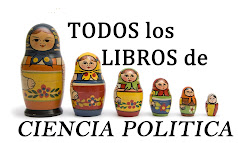
Ecological Intelligence by Prof. Daniel Goleman Ph.D. (Author, Reader)
Publisher: Macmillan Audio; Abridged edition (April 14, 2009) | ISBN: 1427207380 | Language English | Audio CD in MP3/128Kbps | 454 MB
Publisher: Macmillan Audio; Abridged edition (April 14, 2009) | ISBN: 1427207380 | Language English | Audio CD in MP3/128Kbps | 454 MB
Ecological Intelligence recasts the uproar over global warming and the assault of man-made toxins into our bodies in terms of the collective self-deception which both created this crisis and holds a key to its solution. Ecological Intelligence argues that "green" labels and recycling programs may do more harm than good by feeding a vital lie, lulling us into the illusion that we are doing enough already while ignoring the adverse impact of the far vaster proportion of what we buy and do. The book brings a psychologist's insights into the world of commerce, arguing for radical transparency -- tracking every substantial impact over the life cycle of an item, from manufacture to daily use, to disposal -- and surfacing those impacts at the point of purchase. The movement toward such transparency augurs a day when the free market will operate in public interest.
From Publishers Weekly
Two years ago, British fashion designer Anna Hindmarch produced the must-have accessory of the season: a bleached, organic cotton tote manufactured in fair-wage factories, subsidized with carbon offsets and emblazoned with the slogan, I'm NOT a plastic bag. But according to Goleman (Emotional Intelligence), the people who bought the bag were advertising their ecological ignorance, not their consciousness. In this thorough examination of the inconsistencies and delusions at the core of the going green effort, the author argues that consumers are collective victims of a sleight of hand, helplessly unaware of the true provenance and impact of the products they purchase: they reassure themselves by buying environmentally friendly tote bags that, upon ecological assessment, reveal some uncomfortable facts, e.g., 10,000 liters of water were required to grow the cotton for one bag, and cotton crops alone account for the use of about 10% of the world's pesticides. Goleman's critiques are scathing, but his conclusion is heartening: a new generation of industrial ecologists is mapping the exact impact of every production process, which could challenge consumers to change their behavior in substance rather than just show. (Apr.)
Copyright © Reed Business Information, a division of Reed Elsevier Inc. All rights reserved.
From Booklist
*Starred Review* Goleman, best-selling author of such groundbreaking works as Emotional Intelligence (1995) and Primal Leadership (2002), brings his invaluable behavioral insights to our most urgent dilemma: how to halt environmental catastrophe. What’s required, Goleman believes, is ecological intelligence, which he defines as understanding the “hidden web of connections between human activity and nature’s systems, and the subtle complexities of their intersections.” More concretely, Goleman encourages readers to learn about the many invisible threats to our health and the health of the environment caused by product manufacturing. Wisely focusing on the one element we can control, what we purchase, Goleman calls for higher “green” standards and “radical transparency” regarding how products are made. An enlightening foray into industrial ecology reveals how new forms of analysis determine precisely how the manufacture of such disparate items as toys, shampoo, and paper contributes to natural resource depletion, chemical pollution, and global warming. Brimming with intriguing, useful, and galvanizing information, this is an exceptionally sharp, innovative, and realistic approach to raising the demand for environmentally safe merchandise. Given Goleman’s track record and the pressing need for smart strategies, this fascinating treatise has tremendous potential for reaching and motivating a large and diverse audience. --Donna Seaman
.





Publicar un comentario